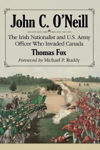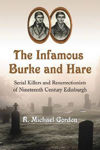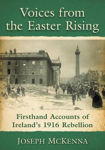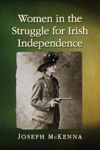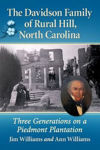McFarland & Co Inc
View as
Sort by
Display per page
A Cut Below: A Celebration of B Horror Movies, 1950s-1980s
9781476691954
Explores 60 B horror films, divided into 12 fun and uniquely-themed categories. Chapters discuss how the Atomic Age, the Vietnam War, the women's liberation movement and other current events and social issues affected these films. Films covered include Willard, The Fly, Santa Sangre and many more.
€36.18
John C. O'Neill: Union Army Officer, Irish Republican Raider of Canada
9780786497935
In June 1866, an 800-man contingent of the Irish Fenian Brotherhood invaded Canada to free Ireland from British rule. The force was led by Irish-born John Charles O'Neill. The invasion was a military success but a political failure. This biography covers the rise, fall and resurgence of a remarkable figure in American and Irish history.
€36.86
The Infamous Burke and Hare: Serial Killers and Resurrectionists of Nineteenth Century Edinburgh
9780786444038
Body snatchers and grave robbers were the stuff of Victorian lore, but two real-life culprits took the crimes out of shadowy cemeteries and into criminal court. This title explores the work of the Resurrectionists, and shows the nature of serial killers, 1820s criminal law, and Edinburgh's early role as a seat of European medical research.
€22.09
Voices from the Easter Rising: Firsthand Accounts of Ireland's 1916 Rebellion
9781476668239
Records a week in Dublin during April 1916 when in a forlorn hope 2,000 Irish Volunteers rose up in armed rebellion against the British Empire in a bid to establish an independent Irish state. The Rising is recalled in the words of those who took part. It traces the establishment of the various organisations that eventually came together that Easter week. The work then leads on to a day-to-day narrative.
€59.65
Women in the Struggle for Irish Independence
9781476680415
Women have too often been written out of history. This is especially true in the fight for Irish independence. The women's struggle was three-fold, beginning with the suffragettes' fight to win the vote. Then came the push for fair pay and working conditions. Binding them together became part of the national struggle.
€53.13
Reading the Short Story: A Student's Guide to Selected British, Irish and American Works
9781476673981
Beginning with a brief history and evolution of the short story genre, alongside an overview of the key short story writers, and an explanatory chapter of literary criticism, this book aims to give readers insight into the works by canonical British, Irish, and American authors, including Edgar Allan Poe, James Joyce, Flannery O'Conner, and more.
€35.23
The Davidson Family of Rural Hill, North Carolina: Three Generations on a Piedmont Plantation
9781476680484
John Davidson came to the North Carolina back country circa 1751. Davidson worked hard, prospered, married well and built a plantation on the Catawba River he called Rural Hill. Drawing on public documents, family papers and slave records, this history describes how a fiercely independent family grew their lands and fortunes into a lasting legacy.
€41.33




